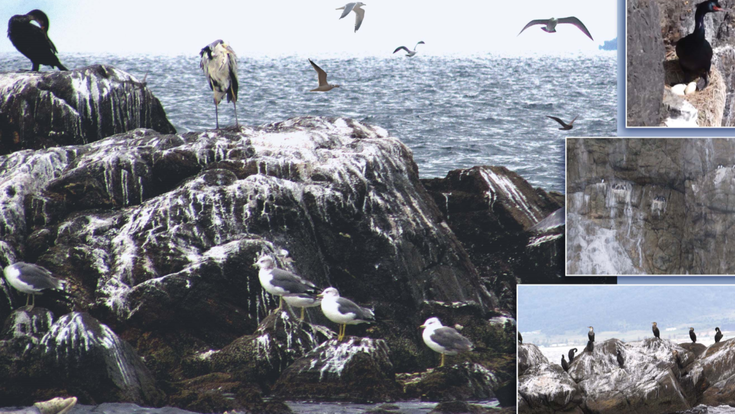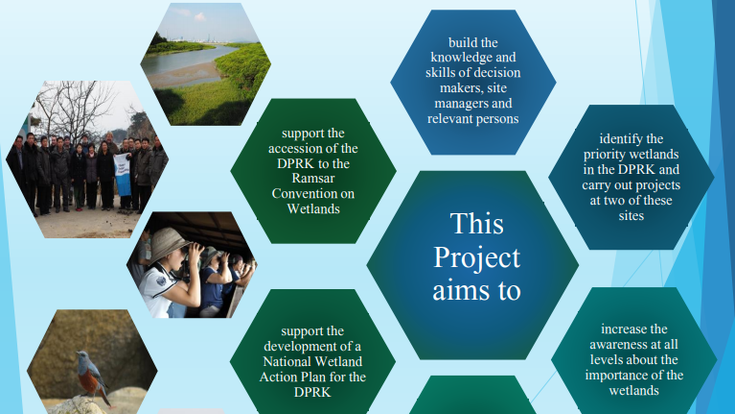Publication
Ramsar Site in Rason

The magazine Pictorial Korea publishes new issues every month, which cover a wide range of topics related to culture, politics, economy and nature conservation. In issue 773 published in May 2020 an article about the ecosystems of Rason was included. According to the article, the Rason Migratory Bird Reserve on the lower Tuman River, which was designated as a Ramsar Site in 2018, not only offers beautiful landscapes, but also ideal habitats for animals and birds. The author Pak Yong Ju describes the area as biologically rich, due to the presence of lakes with clear water, large and small bays, and islands, as well as peaceful and dense forest. As a result, more than 50 000 water birds of 250 different species, including endangered species, are sighted in the area every year. The small island of Al, which is located in this area and was designated a sanctuary for seabirds in 1959, also serves as a breeding ground for seagulls, Temmnick's Comorants and numerous other seabirds.

In general, it can be said that the wetland ecosystem in Rason is highly diverse and has a rich biodiversity. With the designation of Rason Migratory Bird Reserve, the site was recognized as a wetland of international importance. HSF Korea also contributes to the conservation efforts, as it has been active in this area for several years and specializes in capacity building, education and awareness raising, especially regarding the conservation and wise use of wetlands. This takes place in the form of international works abroad or in North Korea, surveys of the local biodiversity and international study tours, which can be read more about here. HSF Korea also sees this as a chance to promote and further promote an integration of North Korea into international environment networks, such as the Ramsar Convention or the East – Asian Australasian Flyway Partnership, by engaging local partners in North Korea.
